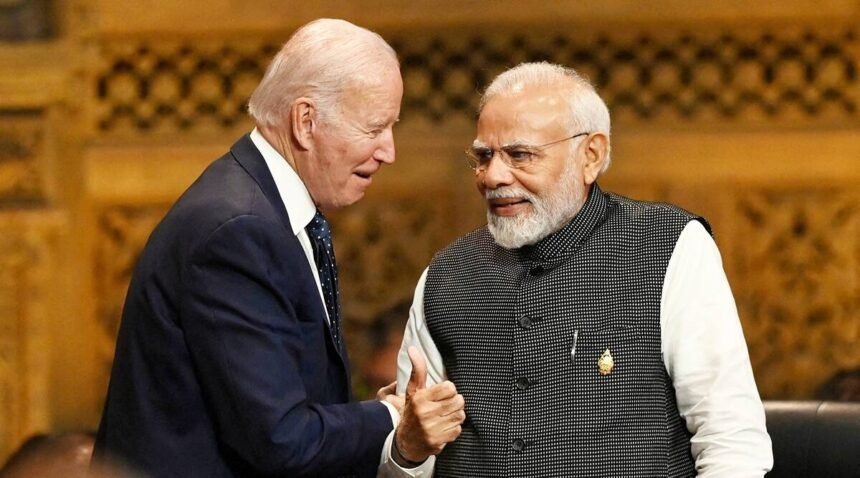In a strategic move aimed at bolstering bilateral ties, the Biden administration has made the decision to extend an official state visit invitation to Prime Minister Narendra Modi of India. Despite the existence of certain challenges in the relationship between the two countries, this move reflects a commitment to playing the long game and fostering a strong partnership between the United States and India. The state visit, scheduled for June, will mark Prime Minister Modi’s first visit to the U.S. during the Biden presidency.
Rick Rossow, a well-known expert on India and senior adviser at the Center for Strategic and International Studies, hailed the invitation as a positive development. He expressed his appreciation for the Biden administration’s decision, recognizing the significance of the prime minister’s visit to the United States and the subsequent state dinner to be hosted by President Joe Biden and First Lady Jill Biden on June 22.
The decision to extend this invitation demonstrates the Biden administration’s recognition of the importance of the U.S.-India relationship and its commitment to engaging with India on various fronts. It signifies a desire to overcome existing challenges and find common ground to further strengthen bilateral cooperation. By hosting Prime Minister Modi on an official state visit, the administration aims to forge stronger ties and foster collaboration on critical issues such as trade, security, climate change, and technology.
The relationship between the United States and India has experienced its fair share of ups and downs over the years. While there have been areas of cooperation and shared interests, there have also been points of contention. However, the Biden administration is keen on taking a pragmatic and forward-looking approach. Instead of letting immediate challenges overshadow the potential for long-term collaboration, they have chosen to engage in meaningful dialogue and work towards mutually beneficial outcomes.
The decision to host Prime Minister Modi at a state dinner is a significant gesture of respect and friendship. State dinners are typically reserved for close allies and partners, emphasizing the importance and seriousness with which the Biden administration views its relationship with India. Such events provide an opportunity for leaders to connect on a personal level, fostering understanding and trust that can translate into stronger diplomatic ties.
The state visit holds the promise of advancing key areas of cooperation. Trade and economic relations, for instance, have been a source of both opportunities and challenges in the U.S.-India relationship. By engaging in dialogue during the state visit, both countries can explore ways to expand trade ties, address trade imbalances, and create a more conducive environment for investment and business partnerships.
Security cooperation is another critical aspect of the U.S.-India relationship. As both countries face common security challenges, such as terrorism and regional instability, enhanced collaboration can lead to more effective counterterrorism measures, intelligence sharing, and joint military exercises. The state visit provides a platform for discussions on strengthening security cooperation and aligning strategies to address shared threats.
Furthermore, climate change and technology cooperation are areas where the United States and India can make significant strides together. Both countries have committed to combating climate change and transitioning to clean energy sources. By leveraging each other’s expertise, resources, and technologies, they can accelerate progress towards climate goals. Similarly, collaboration in the technology sector, including digital innovation and cybersecurity, holds immense potential for mutual benefit.
While the state visit signifies a positive step forward, it is important to acknowledge that challenges persist in the U.S.-India relationship. Issues such as trade barriers, intellectual property rights protection, human rights concerns, and geopolitical dynamics in the Indo-Pacific region will require ongoing attention and dialogue. However, the Biden administration’s decision to prioritize engagement and extend this invitation demonstrates its commitment to addressing these challenges constructively and in a spirit of partnership.




